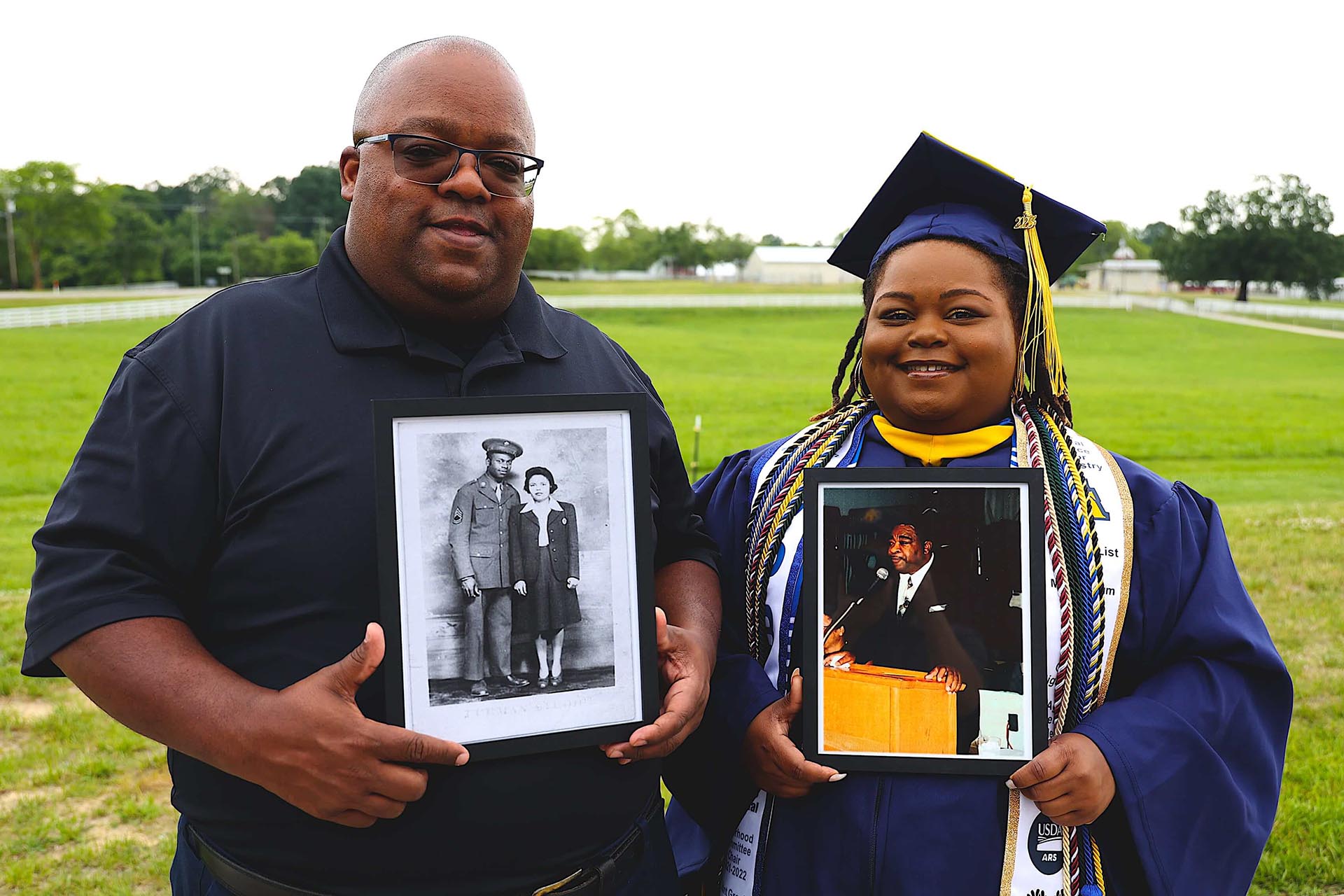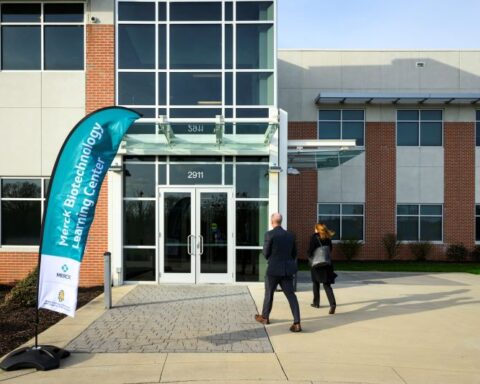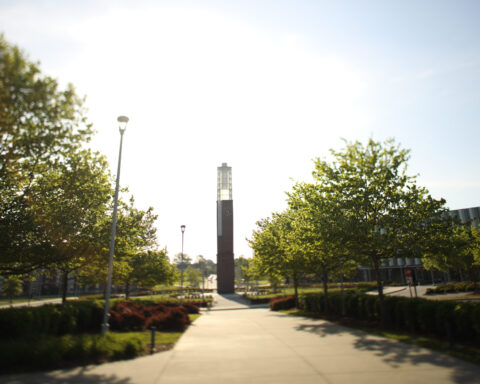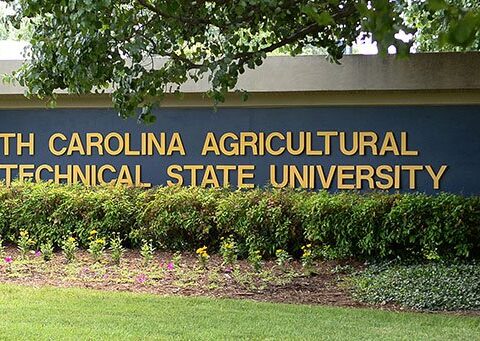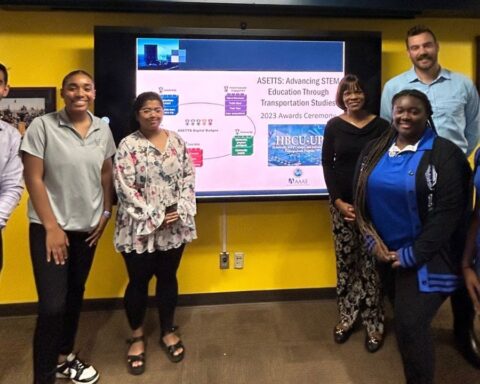By Lydian Bernhardt
In the 1960s, Albert Alston came to North Carolina Agricultural and Technical State University from Rocky Mount, North Carolina, graduated with a degree in agricultural education and went on to become an agriculture teacher at Northern Nash High School. One of his students was his son, Antoine.
In the 1990s, Antoine Alston followed in his father’s footsteps to N.C. A&T and into agricultural education. He went on to earn his Ph.D. and serve his alma mater as associate dean for academics in the College of Agriculture and Environmental Sciences (CAES).
In 2023, there is Antoine’s daughter, Kayla Alston, an A&T honors graduate and a U.S. Department of Agriculture 1890s Scholar majoring in animal sciences and minoring in chemistry.
When she turned her tassel at A&T’s May 13 graduation ceremony, she represents the latest generation of her family to pursue an agriculturally-oriented degree from the university.
Add in Antoine’s maternal grandfather L.C. McLaurin, who earned his dairy science degree in 1940 from Delaware State University, and the family spans four generations of 1890 university agriculture.
“It’s kind of unusual, particularly for Black families, to have so many generations of college graduates,” said Antoine. “Our family always believed in education.”
With so much history surrounding her, Kayla’s path might have seemed like a foregone conclusion. She had grown up on campus, in her dad’s office and at football games and homecoming events.
But at first, Kayla said, she wanted a new experience.
“I actually looked everywhere else but A&T,” she said. “I’d been here all my life, my dad was here, and he was in my department. But then, I took a formal tour and realized that he and I were just going to have to have some talks and that it was going to work out, because I really wanted the family feel, the smaller programs, the personal touch that you get here.”
On the other hand, Antoine, who had grown up visiting Webb Hall and the University Farm himself, had been patiently watching his daughter for signs of ag interest. He knew she was hooked from the time she joined the National FFA Organization in high school.
“She started tracking that way, and when she said she wanted to study animal science, I thought, ‘Here we go,’ he said. “I just kind of wanted to nudge her a little bit. And she followed.”
The Alstons negotiated boundaries – no paternal grade-checking or reminders to study harder – and Kayla became a freshman in fall 2019. She didn’t tell people about her pedigree at first.
“I didn’t want people to think I was just here because my dad got me here,” she said. “I told him, ‘You have to be associate dean, not just Dad.’ I feel that we’ve done a good job with our relationship. I’ve been able to show that I was here for me, not just because of my dad.”
Kayla made friends and found study groups, only to see the university’s whole dynamic change the next semester when the campus closed in response to COVID-19.
“It was very hard,” she said. “I wasn’t around my support system as much as I wanted to be. All the study groups with my friends, and the chance to just to wind down on the weekend, ended. It made it very hard to stay motivated. I had to just keep my end goal in sight.”
Kayla persevered and became a member of Collegiate Farm Bureau, the honors college, the Aggie Mentor Collective and MANRRS (Minorities in Agriculture, Natural Resources and Related Sciences). She was one of only 60 undergraduates and was the only participant from North Carolina chosen to present last summer at Posters on the Hill, a conference presented by the Council on Undergraduate Research.
Kayla knew her grandfather, who passed away in 2022. She did not know her great-grandfather, but she knows he would be proud.
“It didn’t hit me right away, but now, graduating, I’m realizing that I’m really carrying on my family’s legacy,” she said. “I think they’re looking down, smiling, right now.”
In addition to her dad, Kayla credits many members of her A&T family for her success: student support specialist Kishaa James, whose door is always open; Millie Worku, Ph.D., in whose lab Kayla worked since freshman year; and animal sciences faculty member Andrea Gentry-Apple, DVM, whose role modeling as a Black female veterinarian provided the “tough love” Kayla said she needed.
This fall, she’ll go to Auburn University on scholarship to get her master’s degree in wildlife sciences, and from there, possibly to work at the USDA.
“I’m extremely proud,” said Antoine. “When I see my daughter out on the farm I worked as a student and that my dad had worked on 30 years earlier – it’s hard to describe. I’ve told her, ‘The sky’s the limit.’ She makes me proud.”

